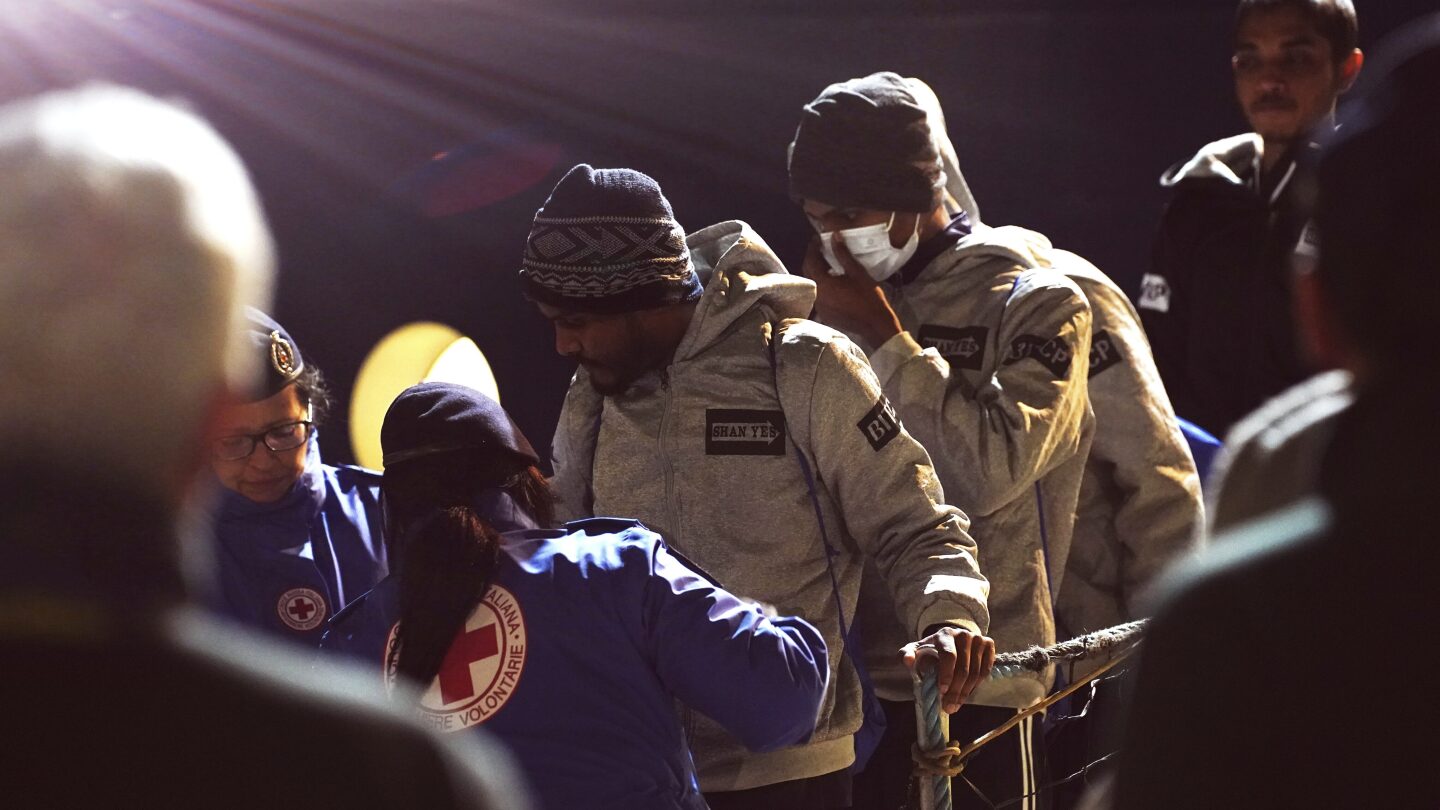MILAN (AP) — The humanitarian rescue group SOS Humanity on Wednesday protested Italy’s seizure of its migrant rescue ship Humanity 1, fresh from a weekend rescue during which the charity said Libyan Coast Guard fired live bullets and used violence.
The German charity said The Humanity 1 followed international law, and that no clear reason was given for the seizure, which took place after the vessel docked in the southern port of Crotone and disembarked 77 rescued people.
“Humanity 1 was first on the scene and therefore responsible for the rescue according to maritime law,’’ said the captain, who was identified only by his first name Leo. “If the so-called Libyan Coast Guard had not turned up to illegally return survivors to Libya, we would have carried out the rescue in an orderly way.”
SOS Humanity said several migrants aboard three unseaworthy boats had to jump into the water during Saturday’s rescue. It said it picked up 77 people but others were forced aboard a coast guard vessel, separating families. At least one migrant is presumed to have drowned.
Italy’s far-right-led government has seized boats that have not followed new hardline rules, which have included ordering boats to proceed to port without making additional rescues and assigning ports further north in Italy. But the charity said none of the authorities involved has been able to explain exactly why the boat was impounded.
Italian authorities have not publicly commented on the seizure.
“The Italian authorities attempted to justify the arrest of the Humanity 1 on the grounds that the Humanity 1 would have caused a dangerous situation for the people in distress at sea. In fact, it was the so-called Libyan Coast Guard, financed by the EU, who endangered the lives of the people in the water and our rescue crew,’’ the captain said in a statement. He said he has video backing up the charity’s account.
Since 2015, the European Union has been funding the Libyan coast guard as part of efforts to stem the flow of migrants from the North African country towards Italian shores. Up to 90% of people crossing the Mediterranean Sea to Europe depart from Libya, according to the UN refugee agency, UNHCR.
As part of the deal, the coast guard has intercepted migrants in Libyan and international waters and has returned them to Libya. A project run by the International Organization for Migration has recorded at least 17,000 deaths and disappearances on that route since 2014.
Libya has in recent years emerged as the dominant transit point for migrants fleeing war and poverty in Africa and the Middle East. The North African nation was plunged into chaos following a NATO-backed uprising that toppled and killed longtime autocrat Moammar Gadhafi in 2011.

